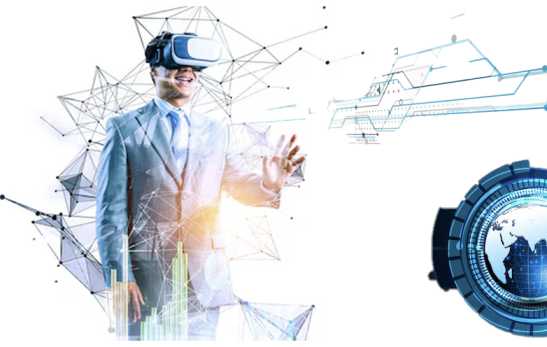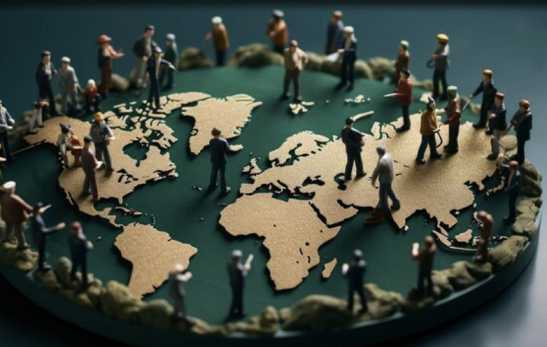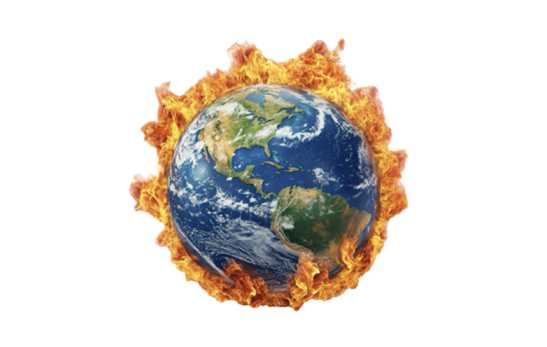TASK 1
1. How do you think climate change is affecting daily life in your region?
Climate change has become the elephant in the room, subtly but significantly altering how we live. From irregular monsoons to sudden heatwaves, it feels like nature’s balance is tipping over. For instance, farming, which is a backbone of many communities, has taken a hit due to unpredictable weather. Such changes remind us that we’re all sailing in the same boat, facing the consequences of climate change globally and locally. It’s a call to action for governments and individuals alike.
2. Why do you think global climate change is such a pressing issue today?
Climate change is no longer a problem we can sweep under the rug. Its impacts are visible in rising sea levels, melting glaciers, and erratic weather patterns. This isn’t just an environmental issue—it’s a domino effect that impacts economies, health, and even security. As temperatures rise, the clock is ticking, and the need for sustainable practices has become the name of the game. The world needs to join forces to tackle this challenge head-on.
3. What role do individuals play in combating climate change?
The fight against climate change is not just about governments or corporations; it’s about every individual pulling their weight. Small changes, like reducing waste, conserving water, or switching to renewable energy, can add up to a mountain of change. As the saying goes, “many drops make an ocean,” and this couldn’t be more relevant. If we all make eco-friendly choices, we can create a ripple effect that benefits the planet.
4. How has technology helped address climate change?
Technology has truly been a game changer in the fight against climate change. From advanced weather prediction systems to green innovations like solar panels and electric vehicles, it’s like having a knight in shining armour. Data analytics and AI help track carbon footprints, while renewable energy sources turn the tide against dependency on fossil fuels. While technology alone isn’t a silver bullet, it is an essential tool in this global effort.
5. Do you think climate change awareness has improved over the years?
Absolutely! The world is finally waking up and smelling the coffee. Awareness campaigns, documentaries, and even social media have made climate change a household term. People are becoming more conscious about their choices, from what they eat to how they travel. However, there’s still a long road ahead, especially in translating awareness into action. The key is to maintain this momentum and ensure that the younger generation carries the torch of sustainability forward.
6. What challenges do developing nations face in addressing climate change?
Developing nations often find themselves caught between a rock and a hard place. On one hand, they need to focus on economic growth, but on the other, they can’t ignore the writing on the wall about environmental degradation. Limited resources and lack of infrastructure often act as stumbling blocks in adopting green technologies. However, with the right international support and policies, these nations can turn over a new leaf and embrace sustainable development.
7. How does climate change affect global food security?
Climate change has become a thorn in the side of global food security. Erratic weather patterns and extreme events like droughts or floods disrupt agricultural cycles, leading to lower yields and rising food prices. This creates a domino effect, hitting the poorest communities the hardest. Sustainable farming practices and climate-resilient crops could be the light at the end of the tunnel, ensuring food for future generations.
8. Can you discuss the ethical implications of climate change?
The ethical side of climate change is often overlooked but is the heart of the matter. Developing nations, which contribute the least to global emissions, are often the ones bearing the brunt of its impacts. There’s also a moral question about intergenerational justice—what kind of world are we leaving for our children? As the saying goes, “we do not inherit the Earth from our ancestors; we borrow it from our children.” This highlights the need for global equity in addressing this crisis.
9. How does climate change influence biodiversity?
The impact of climate change on biodiversity is like a house of cards collapsing. Rising temperatures and shifting habitats are causing many species to either migrate or face extinction. Coral reefs, often called the rainforests of the sea, are dying due to warming oceans. Protecting ecosystems isn’t just about saving animals—it’s about preserving the delicate web of life that sustains all of us.
10. Do you think governments are doing enough to combat climate change?
Governments have taken baby steps in combating climate change, but the effort needs to be more full-throttle. Policies like carbon taxes and green energy subsidies are promising, but they need to be implemented to the letter and spirit. There’s also a need for global collaboration, as no single country can tackle this alone. The Paris Agreement is a step in the right direction, but the journey is far from over. Governments must walk the talk and take more decisive actions.
List of vocabulary used: (Task 1)
- Cognitive: Relating to mental processes like thinking, learning, and problem-solving.
- Integral: Essential or fundamental.
- Streamlining: Making a process more efficient or effective.
- Ethical: Relating to moral principles.
- Displacement: The act of moving something from its place or position.
- Empathy: The ability to understand and share another person’s feelings.
- Complement: Something that enhances or completes another thing.
- Indispensable: Absolutely necessary.
- Domino effect: A chain reaction where one event triggers another.
- Carbon footprint: The total amount of greenhouse gases emitted by an individual, organisation, or product.
- Renewable: Capable of being replenished or renewed.
- Sustainable: Able to be maintained at a certain level without exhausting resources.
- Resilience: The ability to recover quickly from difficulties.
- Equity: Fairness or justice in the way people are treated.
- Conscious: Aware and deliberate.
- Momentum: The driving force gained by a series of actions or developments.
- Collaboration: Working together to achieve a common goal.
- Biodiversity: The variety of plant and animal life in the world or a particular habitat.
- Subsidies: Financial assistance provided to encourage specific actions or reduce costs.
- Global cooperation: Collective efforts of countries worldwide to achieve a shared goal.
Idioms
- Elephant in the room: An obvious issue that is being ignored.
- Balance is tipping over: Things are becoming unstable or unbalanced.
- Backbone of many communities: The main support or foundation.
- Sailing in the same boat: Sharing the same difficulties or challenges.
- Double-edged sword: Something that has both positive and negative consequences.
- Sweep under the rug: To ignore or conceal a problem.
- Name of the game: The most important aspect of something.
- Clock is ticking: Time is running out.
- Pulling their weight: Contributing a fair share of effort.
- Add up to a mountain of change: Small actions leading to significant impact.
- Many drops make an ocean: Small contributions collectively create something big.
- Game changer: Something that significantly alters a situation.
- Knight in shining armour: A person or thing that saves someone from a difficult situation.
- Turn the tide: To reverse a situation.
- Silver bullet: A simple and seemingly magical solution.
- Waking up and smelling the coffee: Realising the reality of a situation.
- Long road ahead: A lot of work still needs to be done.
- Torch of sustainability: Carrying forward the idea of sustainable living.
- Caught between a rock and a hard place: Facing two equally difficult choices.
- Writing on the wall: A clear indication of something bad about to happen.
- Stumbling blocks: Obstacles or challenges.
- Turn over a new leaf: To make a fresh start.
- Thorn in the side: A persistent difficulty or annoyance.
- Light at the end of the tunnel: Signs of improvement after a period of difficulty.
- Heart of the matter: The most important aspect of an issue.
- Bearing the brunt: Facing the worst part of something.
- House of cards collapsing: A fragile or unstable system falling apart.
- Delicate web of life: The interconnectedness of all living things.
- Baby steps: Small, incremental progress.
- Full-throttle: Done with full effort or intensity.
- Implemented to the letter and spirit: Followed exactly as intended.
- Step in the right direction: Progress toward a goal.
- Walk the talk: To act in accordance with one’s words.
Phrases
- Sustainable farming practices: Agricultural methods that protect the environment.
- Climate-resilient crops: Plants bred to withstand changing climatic conditions.
- Global food security: Ensuring access to sufficient, safe, and nutritious food worldwide.
- Erratic weather patterns: Unpredictable and irregular weather.
- Renewable energy sources: Energy derived from resources that are naturally replenished.
- Carbon taxes: Financial charges on carbon emissions to reduce environmental impact.
- Green energy subsidies: Financial aid to promote the use of renewable energy.
- Eco-friendly choices: Decisions that benefit or minimally impact the environment.
- Intergenerational justice: Fairness between different generations regarding resource use.
- Global challenges: Issues that affect the entire world and require international efforts.
TASK 2
Topic: A Social Issue
– Question: Describe a social issue that concerns you.
– You should say:
– What is the social issue, and why is it important?
– How does it impact individuals or society?
– What actions can individuals take to address it?
– How can governments and organisations contribute?
Task 3 follow-up questions and answers
Q1: In your opinion, why does it take so long for societal problems to be resolved?
One of the main reasons societal problems take so long to resolve is due to the complexity involved. Often, these issues are deep-rooted, tied to centuries of tradition, and they require a shift in mindset that doesn’t happen overnight. Change is a slow process, and it’s a case of baby steps rather than a giant leap. Moreover, conflicting interests make it difficult for everyone to get on the same page. The wheels of progress turn slowly, but with sustained effort, significant change can be achieved.
Q2: How does the media shape public perception of societal issues?
The media has a powerful role in shaping public opinion and setting the agenda for what people care about. While it can shed light on pressing issues, it can also distort the truth, leading to biased or exaggerated portrayals of situations. Sometimes, the media can blow things out of proportion, making small issues seem like life-or-death matters. In some cases, the loudest voices drown out more nuanced opinions. That said, the media can also be a force for good, driving conversations that spark social change.
Q3: What motivates people to take action against societal issues?
People are often moved by their conscience, and a sense of moral duty drives them to take action. Personal experience also plays a big part—if someone has been affected by an issue, they’re more likely to step up to the plate. On a broader level, seeing like-minded individuals coming together can be a huge motivator, as it gives people a sense of belonging and strength in numbers. Furthermore, a growing sense of global awareness is encouraging individuals to take responsibility for issues that affect society at large.
Q4: Do you think people should be more concerned about social issues locally or globally?
It’s a tricky balance. While global problems like climate change and poverty should not be ignored, it’s crucial to focus on local issues that have a direct impact on the community. It’s all about striking a balance—local concerns can be tackled on a grassroots level, and they often act as a catalyst for broader change. However, we should also recognize that global challenges affect everyone, and what happens in one corner of the world can ripple out, impacting societies far and wide.
Q5: How do you think education can help in resolving societal issues?
Education is the bedrock upon which any solution to societal problems should be built. It provides the tools to challenge misconceptions and empower individuals to make informed decisions. Awareness campaigns in schools and communities can help people see the bigger picture, breaking down the barriers of ignorance and prejudice. It also encourages critical thinking, making it harder for unfounded beliefs to gain traction. Education, when used right, can be the great equaliser.
Q6: Why do you think some people resist change even when it’s necessary for societal progress?
People often resist change because they’re set in their ways or because change brings uncertainty. The fear of the unknown can lead people to dig their heels in, even when the benefits are clear. There’s a saying, “Better the devil you know than the devil you don’t,” and this captures the reluctance many people feel when faced with unfamiliar concepts. Additionally, some may resist because change often requires personal sacrifices, and not everyone is willing to make those.
Q7: How can public protests influence social change?
Public protests have the ability to rattle the cage and bring attention to issues that are often overlooked. When people come together, united in a cause, they can send a strong message to both the public and the authorities. While protests can stir the pot, they can also create a groundswell of support, ultimately forcing the hand of those in power. Of course, they must be peaceful and well-organised, otherwise, they risk backfiring and becoming counterproductive.
Q8: In what ways do cultural perceptions influence how social problems are addressed?
Cultural perceptions play a huge role in shaping responses to societal problems. For example, in some cultures, there’s a strong emphasis on the collective good, which means that social issues are tackled together. In others, the focus may be more on individual rights, making the approach more fragmented. Additionally, cultural taboos and values can cloud people’s judgment, often preventing them from addressing issues head-on. It’s important to understand cultural nuances when dealing with problems on a global scale.
Q9: Can social movements lead to real change, or are they just temporary trends?
Social movements have the potential to spark real change, but they need sustained momentum. If the movement loses steam, it can fizzle out and become just another flash in the pan. However, when a movement has strong leadership, clear objectives, and public support, it can lead to lasting societal transformation. Movements like #MeToo or Black Lives Matter show that with the right resources and visibility, societal norms can shift in profound ways.
Q10: What role do individuals play in shaping societal values?
Individuals are the building blocks of society, and their actions can have a significant impact on societal values. By setting a positive example, challenging outdated beliefs, and speaking up for justice, individuals can lead the charge for change. When people stand up for what they believe in, they inspire others to do the same. Over time, these actions can create a ripple effect, ultimately reshaping societal norms and encouraging more inclusive, progressive values.
List of vocabulary used: (Task 3)
- Grapping – Struggling with, dealing with.
- Complexity – The state of being complicated or intricate.
- Deep-rooted – Strongly established, difficult to change.
- Shift – A change or movement.
- Conscience – An inner feeling of right and wrong.
- Moral duty – The responsibility to act ethically.
- Empower – To give someone the power or authority to do something.
- Prejudices – Preconceived opinions not based on reason or experience.
- Ignorance – Lack of knowledge or awareness.
- Grassroots – The most basic level of an activity or organization.
- Catalyst – An agent that provokes or speeds significant change.
- Conscience – An inner feeling or voice that guides one’s actions.
- Mindset – The established set of attitudes held by someone.
- Sacrifices – Giving up something important for the sake of a greater good.
- Fragmented – Broken into pieces, not unified.
- Nuances – Subtle differences or variations.
- Momentum – The force or speed with which something moves or progresses.
- Sustained – Maintaining something at a consistent level.
- Resources – Supplies or assets used for a particular purpose.
- Visibility – The state of being seen or known.
- Leadership – The action of leading a group or organization.
- Taboos – Prohibited or restricted by social custom.
- Transformation – A thorough or dramatic change in form or appearance.
- Progressive – Favoring or implementing social reform or new ideas.
Idioms:
- A tough nut to crack – Something difficult to solve or understand.
- The wheels of progress turn slowly – Progress is often slow and requires patience.
- Better the devil you know than the devil you don’t – It’s safer to deal with familiar problems than to face the unknown.
- Blow things out of proportion – To exaggerate or overstate a situation.
- Rattle the cage – To disturb the status quo or challenge the existing conditions.
- Strength in numbers – The idea that a group of people is stronger and more influential than an individual.
- Step up to the plate – To take responsibility or take action.
- Force the hand – To make someone act or make a decision, often due to external pressure.
- Set in their ways – People who are resistant to change.
- Dig their heels in – To resist or refuse to change one’s position.
- The unknown – A situation where the outcome is uncertain or not yet understood.
- The devil is in the details – Small details or elements are often crucial but can be tricky or complicated.
- Flash in the pan – Something that initially seems promising but ends up being unsuccessful.
- Building blocks – Fundamental components that form the basis of something.
- Lead the charge – To be the first to take action in a particular initiative or movement.
- Stand up for – To defend or support something or someone.
- Rippling effect – A situation where a small action causes a series of events or consequences.
Phrases:
- Public opinion – The general consensus or viewpoint of the population.
- Setting the agenda – Determining what topics or issues are discussed or focused on.
- Shed light on – To provide clarity or make something clearer.
- Challenge misconceptions – To question or correct false beliefs.
- Awareness campaigns – Initiatives designed to increase public knowledge about a particular issue.
- Global awareness – Understanding or concern about global issues or events.
- Personal experience – Knowledge or understanding gained through one’s own life events.
- Social norms – Unwritten rules that govern the behavior of members of a society.
- Challenging outdated beliefs – Questioning and trying to change beliefs that are no longer valid or useful.
- Create a ripple effect – To cause a series of events or actions that spread from one to another.
- Shifting societal norms – The process of changing commonly accepted behaviors or beliefs in a society.
- Groundswell of support – A strong, increasing movement or demand, usually in favor of something.
- Positive example – An individual or action that others should look up to or emulate.
- Reshaping societal values – Changing the collective beliefs or moral principles that guide society.
IELTS Speaking Task Topics
Click on any topic to explore more!
Names

Learn about the importance of names and their cultural significance.
Study / Job

Discuss various aspects of studying and working in different fields.
Hometown

Explore the charm of your hometown and its unique features.
Accomodation

Understand various types of accommodation and living situations.
Weather

Learn about how weather influences daily life and activities.
Time

Discuss the concept of time, its importance, and time management.
Television

Talk about the role of television in modern entertainment.
Museum

Discuss the cultural importance of museums and historical exhibits.
Holidays

Explore the significance of holidays and different celebrations.
Films

Learn about the impact of films on culture and society.
Leisure Time

Discuss how leisure activities impact personal well-being.
Sport

Talk about the role of sports in health, entertainment, and culture.
Vegetables and Fruits

Discuss the health benefits and importance of fresh produce.
Maths

Explore the role of mathematics in various aspects of life.
Sky

Discuss the beauty and scientific significance of the sky.
Clothes&Fashion

Explore how clothing reflects culture and personal expression.
Weekend

Discuss the importance of weekends and ways people relax.
Reading

Learn about the importance of reading and various reading habits.
Sleep

Explore how sleep impacts physical and mental well-being.
Trees&Plants

Discuss the environmental and health benefits of plants.
Newspaper

Discuss the evolving role of newspapers in the digital age.
Texting

Explore the role of text messaging in modern communication.
Memorising

Learn techniques for improving memory and memorization.
Travelling

Discuss the importance and impact of traveling in modern society.
Communication

Explore the modes and significance of communicating well
Letter&Email

Explore the differences and significance of letters vs. emails.
Swimming

Discuss the benefits of swimming for health and fitness.
Snacks

Explore the role of snacks in daily nutrition and lifestyle.
Photography

Discuss photography’s cultural and artistic significance.
Help

Talk about the importance of offering and receiving help.
History

Discuss historical events and their impact on modern society.
Handwriting

Explore the significance of handwriting in education and culture.
Music

Learn about the influence of music on emotions and society.
Colours

Discuss how colours affect perception and mood.
Teachers

Explore the role of teachers in shaping students’ futures.
Being Alone

Talk about the experience and benefits of spending time alone.
Teamwork

Learn the importance of teamwork in professional and social contexts.
Countryside & City

Explore the charm and benefits of living in the countryside.
Social Media

Discuss the impact of social media on society and relationships.
Friends

Explore the importance of friendships in life.
Artificial Intelligence (AI)

Talk about the future of AI and its role in society.
Climate Change

Discuss the causes and consequences of climate change.
Transportation

Explore different modes of transportation in your area.
Sustainable Transportation

Explore ways to make transportation more environmentally friendly.
Space Exploration

Learn about the latest advancements in space exploration.
Shopping

Explore how shopping influences culture and the economy.
Modern Technology

Discuss how modern technology is reshaping society.
Technology

Learn about the role of technology in everyday life.
Sustainable Living

Explore ways to live sustainably for the future of the planet.
Globalisation

Learn about the effects of globalisation on society and economies.
Global Warming

Discuss the causes, effects, and solutions to global warming.
Gender Equality

Explore the importance of gender equality in modern society.
Health and Fitness

Discuss the importance of maintaining a healthy lifestyle.
Renewable Energy

Learn about renewable energy sources and their impact on the environment.
Cultural Traditions in Kerala

Explore the unique cultural traditions of Kerala, your hometown.
Cultural Traditions in Your Country

Learn about the cultural traditions in your country.
Education System

Discuss the education system in your country and its effectiveness.
Traditional Cuisine

Explore the significance of traditional cuisines in your culture.
Do you need printed IELTS/ OET practice material? Place your order today. Available now for just Rs: 1,100 (including shipping all across India) Contact us at our WhatsApp number: +91 9886926773 to place your order. (Free for LTC students)

We hope this information has been valuable to you. If so, please consider a monetary donation to Lifestyle Training Centre via UPI. Your support is greatly appreciated.

Would you like to undergo training for OET, PTE, IELTS, Duolingo, Phonetics, or Spoken English with us? Kindly contact us now!
📱 Call/WhatsApp/Text: +91 9886926773
📧 Email: [email protected]
Visit us in person by following the directions on Google Maps. We look forward to welcoming you to the Lifestyle Training Centre.
Follow Lifestyle Training Centre on social media:
Thank you very much!